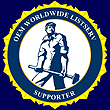Workstations:
MediTrax requires a Windows® (32- or 64-bit) operating system.
File Server:
Whether you require a single workstation, a local area network (LAN) within
your facility, a wide area network (WAN) for remote data entry, or a multi-site installation,
you won't outgrow the capacity of MediTrax to handle virtually unlimited records in its
data tables. If you don't operate on a network now but might wish to in the future, we're
ready to grow with you ... so you can start using MediTrax today with the power of true
integrated data management for the future!
MediTrax is a relational database compiled and linked using C++/Borland technology.
The application requires a Windows® operating environment, and the software has been
successfully tested and used on Windows® Server 2008, 2012, 2016, and 2019 platforms.
MediTrax supports VMWare® virtual servers as well as
Citrix® Terminal Server environments.
The executable program file may be stored either on the file server, or on each individual
workstation in a client-server configuration to minimize network bandwidth.
No "back-end" database platform is required.
Network Operating Systems:
An Important Note About Network Configuration and Program Speed:
A relational database such as MediTrax requires robust file-server
performance to successfully implement a multi-user configuration. Designating a shared
folder on a single Windows® 10 workstation as a network "server" will NOT provide
optimum performance in supporting multiple simultaneous users. Enabling peer-to-peer
networking via a Remote
Desktop Connection (RDP, formerly referred to as "Terminal Services")
to such a shared folder may provide acceptable
program speed for one remote workstation which is connected in that manner, but other
"networked" workstations may experience substantial degradation of program
speed. Moreover, Windows® 10 workstations are limited to a maximum of one RDP connection.
We recommend investigating the possibility of implementing
RDP
services on a server specifically configured for
multi-user connections. For users of Windows® Server 2016, the
Microsoft® technet site
provides additional information. Windows® Server 2019 has even greater flexibility for RDP connections.
Configuring a Virtual Server (e.g., VMWare):
We advise implementing a virtual server with "Quad-Core" processors (i.e., configuring
your VMWare to utilize 4 or 8 processors rather than the default of 2.
Configuring a Citrix® server:
If you are unable to implement RDP services with a large number of concurrent users,
it may be advisable to consider implementing a Citrix® environment to connect networked
workstations with your MediTrax "share". Another alternative worth considering
is TSPlus®, a cost-effective solution featuring
a seamless client offering fast, efficient network access.
An Important Note About
Opportunistic File Locking (OPLOCKS):
Opportunistic locking is a function of Windows® Server environments which allows
clients to lock files and locally cache information without the risk of another user
changing the file. This may decrease performance in some operations because the server
that grants the opportunistic lock must manage the breaking of that lock when another
user requests access to the file -- such as when a user wishes to browse the picklist
of Employees in MediTrax.
We recommend DISABLING the OPLOCKS function to avoid significant delays when browsing
your data tables in a multi-user environment. Because this involves editing the Windows®
registry, it should ONLY be performed by knowledgeable IT/IS support staff.
If your IT/IS staff have not previously done so, and if you are using Windows® Server
2008 or Windows® 7, they should also
disable SMB2.
Instructions for disabling this function can be found at support.microsoft.com/kb/2696547.
An Important Note About Data Encryption:
MediTrax utilizes data encryption to protect sensitive information. If an unauthorized
individual gains network access to your data tables, this encryption prevents such
an individual from associating the identity of a patient/employee with his/her
medical surveillance records and other EMR data.
As an extra security measure, you may wish to encrypt the entire folder in
which your MediTrax data tables are stored using a utility such as TrueCrypt®
or BitLocker®. This step requires each MediTrax user to "decrypt"
the folder prior to opening the program, but the minimal steps involved in that
process do provide an extra level of data security in individual facilities.
An Important Note About Antivirus Software:
It is important to achieve a balance between ensuring a secure and virus-free server environment
while not interfering with the reliability and performance of each server. A lack of exclusions with
regards to virus scanning has traditionally been one of the main causes of outages with regards to
applications and services. In addition, virus scanning is often a cause of performance issues.
Periodic virus scanning of your local and network drives (especially, for example, after downloading and
installing a software update) is advised, but "real-time" or "on-access" scanning
of your data tables may significantly slow performance in a multi-user environment.
To reduce the impact of antivirus software on MediTrax program performance, you must add the folder in which your data tables
are stored AND the folder in which the MT5.EXE executable program is stored to
the %windir%\Security\Database path of the exclusions list (for Windows® Server 2008 R2, Windows®
Server 2012, Windows® Server 2016, and Windows® Server 2019 domain controllers; contact MediTrax Support if you
are using another server platform).
The Microsoft® Security Tool Kit CD includes best practice guidelines,
information about how to help secure your system,
and service packs and updates that can protect your system against virus attacks. It also provides Microsoft® tools to help
you secure your systems and keep them secure.




